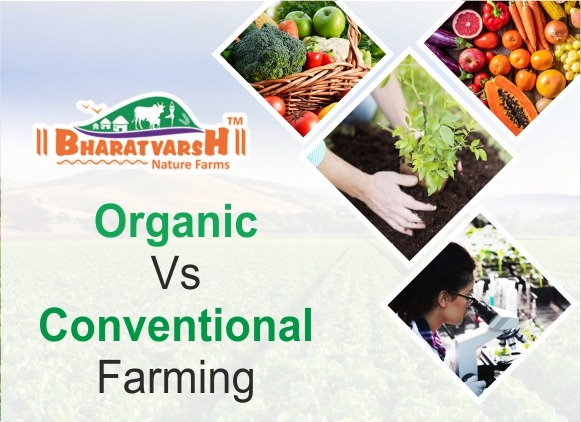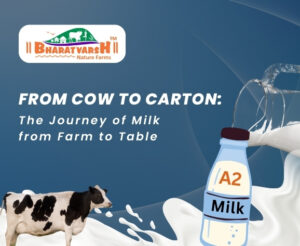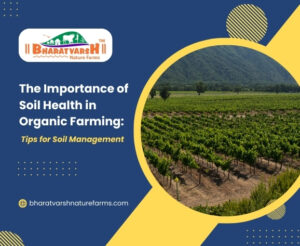India is mostly an agricultural country. According to the Food and Agriculture Organization, agriculture provides a livelihood for 70% of rural households. That is how dependent India is on agriculture. However, the agricultural vocation is highly undervalued here.
Majority of us as consumers don’t even know how fruits, vegetables, and grains are developed and how they get to our plates. And at the same time, the farming community is not aware of the ill effects of using pesticides that leach into the soil and get into the food chain. It is very critical and important for each one of us to know the correct agricultural approach and which agricultural approach is superior: organic farming or conventional farming.
This post will compare organic and conventional farming methods and will address some of the issues involved in each of these farming approaches. The post will also cover what is beneficial for India and Indians’ health.
Organic Farming
The organic farming practice aims to provide healthy and nutritious food while also keeping the land and environment healthy. Organic farming increases soil quality and organic matter by using biological fertilizer inputs and management strategies such as cover cropping and crop rotation.
Organic farming improves the soil’s capacity to absorb water by increasing the quantity of organic matter in the soil, decreasing the effects of drought and floods. Improving soil organic matter also aids in the absorption and storage of carbon and other nutrients required to develop healthy crops, which are more resistant to insects and illnesses. Organic farming is the key when you want to stay healthy.
Organic farming must have the following characteristics:
- Biological fertilizers like manure and compost are used.
- Organic farming does not utilize genetically modified (GM) seeds, herbicides, or fertilizers.
- Crop rotation and mixed farming are examples of sustainable agricultural strategies.
- However, organic farming does not stop there.
The good news is that organic farming and ranching systems that focus on soil health enable farmers and ranchers to become more resilient to the effects of climate change. Organic matter from soil helps crops get nitrogen, phosphorus, and other nutrients from healthy soils. Organic farming reduces the need for synthetic fertilizers and pesticides, which can harm water quality, and reduces greenhouse gas emissions.
Extensive study has also shown that organic farming is accomplished by processes absorbing and storing additional carbon (CO2) in the soil. Organic systems therefore can lessen agriculture’s impact on climate change (i.e., mitigate climate change).
While organic weed management considerably minimizes tillage, eliminates synthetic inputs, and requires some physical disturbance. Organic agriculture systems may benefit from cover cropping, organic amendments, crop variety, and effective nutrient management to increase carbon sequestration and create climate resilience.
Conventional Farming
Conventional farming is the traditional method of agriculture and revolves around the use of fertilizers to provide artificial nutrients to crops. It also involves the use of chemicals to control weeds and pests. The conventional farming approach is geared to improve crop productivity and agricultural output, but crop quality is often overlooked.
Traditional agricultural practices are unsustainable because they harm the land and the ecosystem. Chemicals used in traditional agriculture have a detrimental influence on the environment by creating water pollution, soil erosion, and increasing greenhouse gas emissions, all of which harm human health.
Features of Conventional Farming:
Conventional farming uses strong fertilizers to regulate crop fertility, and pesticides to control pests and diseases. Some of the features of traditional farming are as follows:
- Use of chemical fertilizers
- Use of chemical weed killers
- Use of chemical insecticides
- Use of genetically engineered seeds capable of producing consistent crops
- Only one or two crops are grown in the same land per growing season or year
Organic Farming or Conventional Farming; The conclusion
The advantages of organic farming considerably surpass those of conventional farming. Organic farming strives to enhance overall soil quality to produce nutritious crops and paves the way for a sustainable agricultural method. Organic farming also considers the health of the environment and living creatures.
Organic farming has a long way to go in India, and farmers must be educated about the effect and repercussions of conventional farming. We as consumers can support farmers by purchasing organic products instead of conventional crops. This will greatly help farmers to take up organic farming, which in turn will help our environment.
Organic Farming at Bharatvarsh Nature Farms:
Food farms at Bharatvarsh Nature farms grow organic fruits, vegetables, flowers, and fodder that are completely free from dangerous chemicals. We care for the animals, environment, and people in everything we do. Therefore, we use all the safe practices like Organic or Natural Farming or Zero Budget Natural Farming that provide natural output for our customers, ensure good feed for our cows, and also improve the quality of the soil with each crop. We are fully committed to supplying farm produce, which is always healthy, fresh, and tasty. If you live in Nagpur, we invite you to join our food journey. Enquire today for our dairy products; A2 milk, A2 Malai Paneer, and A2 Cow Ghee, as well as for the weekly supply of fruits and vegetable baskets.
If you are interested in organic farming, we can support you with the supplies of all the organic fertilizers ( Vermicompost, Cow Urine, Cow dung cake, Jeevamrut ), and organic pesticides( Neemastra, Agniastra, Bramastra, Panchgavya, and Dashparni ark ). Enquire today for a supply of these natural products for your rooftop garden, lawn, or organic farm.
Contact Bharatvarsh Nature farms:
Get in touch with us for any further information. Happy Healthy Eating!
For more details, please visit our website: https://bharatvarshnaturefarms.com/ Write to us at: info@bharatvarshnaturefarms.com Call us at 91-8603214214




